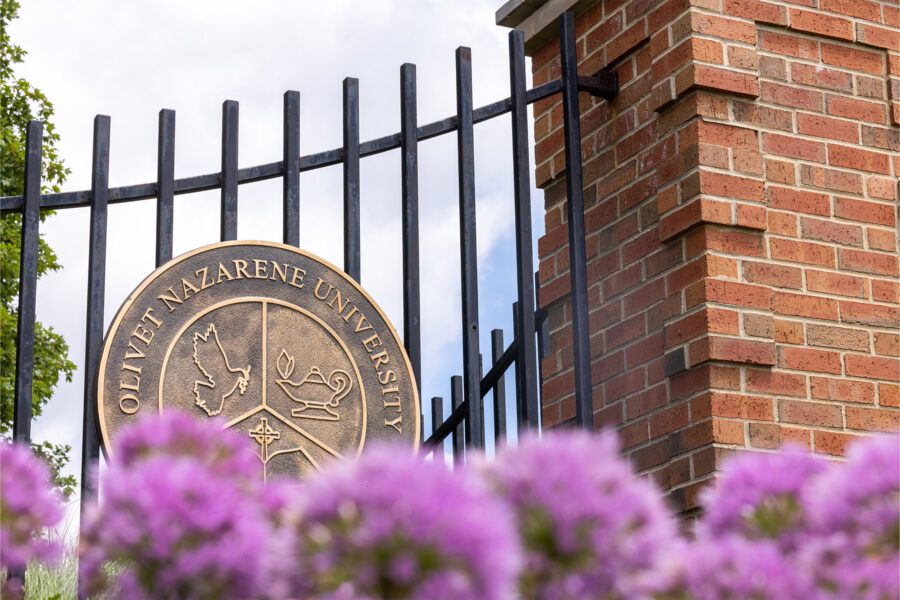
The best way for your student to prepare for college is to make the most of senior year. Your daughter or son should dig into classes. Good study habits, focused determination and solid grades are the best preparation. She or he should invest in extracurricular activities that highlight athleticism, musical talent, leadership or public service. It will be a busy year, and graduation will be here before you know it. These steps, written for your student, will help your family navigate the enrollment process and get a head start on the college experience.
ASK THESE QUESTIONS
Does the college offer your major? Are there ample areas of study (in case you change majors)? Are the professors accessible in and out of the classroom? Are the professors renowned in their fields? Are the academic programs rigorous? After financial aid is awarded, how affordable is the school? How many students are in each class? Does the college have strong internship and study-abroad opportunities? What is the weather like? What defines the classroom experience? Are there added-value opportunities and services? What is the campus city or town like? Does the college provide a multicultural experience? How important is distance from home? Is the campus near additional internships, jobs and culture? Does the college have on- and off-campus guidelines for living? Do you value institutional policies regarding residential life? What arts opportunities are available? Are there sports teams to cheer for? What are all the on- and off-campus dining options? Are there fitness activities for students? Does the college offer off-campus living? What are some alumni success stories? Are academic tutoring and career counseling readily offered? What clubs, intramural sports, ministries and volunteer activities exist? Is the college a good fit for you?
FALL
Visit! Fall is a great time to look at the schools on your college list. The perfect time to connect with students and professors is when classes are in session. Even sit in on a class or two.
Olivet Nazarene University’s Purple & Gold Days events are ideal for experiencing campus firsthand or virtually. Finalize a short list and rank those colleges. Use information gathered from campus visits, interviews and research to determine where to apply. Stay on track with grades and activities.
Colleges look at senior year, so stay focused on classes and maintain commitments to extracurricular activities. Take standardized tests. Register for and take the ACT, SAT or SAT Subject Tests as necessary. The ACT code for Olivet is 1112 and the SAT code is 1596. Keep track of deadlines. It’s important to know what is due when. Make a calendar showing the application deadlines for admission, financial aid and scholarships. Connect with your guidance counselor.
Be sure the counselor knows where to send transcripts, score reports and letters of recommendation. Give the guidance counselor any necessary forms much earlier than the actual deadlines. Complete applications for colleges on your short list. Make sure the guidance office has sent all necessary materials, including test scores, recommendations, transcripts and application essays. Plan to get all this done before winter break so you won’t be rushed. Continue your scholarship search.
Apply for scholarships with approaching deadlines and keep searching for more scholarship and grant opportunities. Using free online scholarship search tools is a great way to find potential aid. Ask colleges about their scholarship opportunities. Be sure to take this information into account when making a short list. A college’s sticker price can fluctuate greatly after financial aid and scholarships are applied. Talk with a financial aid representative at Olivet to discover how scholarships and financial aid change your bottom line.
WINTER
Follow up on applications. Verify with the guidance counselor that all forms are in order and have been sent. File the Free Application for Federal Student Aid (The FAFSA code for Olivet is 001741). Filing for the following school year starts in December of the current year. File as soon as possible to ensure access to eligible state and federal aid as well as priority status for scholarships. Some state programs have limited resources and are first-come, first-served.
Send mid-year grade reports. Ask your guidance counselor to send these reports to colleges on your short list. Remember, colleges will continue to keep track of grades, so it’s important to keep working hard throughout senior year. Review college financial aid packages. Though finances should never be the only factor in a decision, consider each package carefully, as not all colleges use the same format.
SPRING
Prepare! Take any last standardized tests and ACT/SAT retakes (statistically, students improve their score on the second or third attempt). Take Advanced Placement tests or College-Level Examination Program tests to earn college credit as senior year winds down. Be sure to discuss these options with an enrollment adviser at each college on your short list, as every school awards college credit and academic scholarships differently.
Make the final college decision. Notify all schools of your intentions by May 1. If still undecided, schedule campus visits. Send the enrollment deposit and ask your guidance counselor to send a final transcript upon graduation. Submit any other required paperwork. Follow up on financial aid information. Be sure you have received a FAFSA confirmation and award letter. If necessary, explore and apply for loans. Maintain contact with the financial aid adviser to discuss the best options for paying for college. Interact with future classmates. Attend college events, check out class pages on social media and finalize roommate selection.
SUMMER
Attend new student summer orientation. Finalize course selections, choose a dorm room, meet freshman classmates, interact with faculty and staff, and begin the exciting experience of the next four years.
From Olivet The Magazine, The Parent Guide – Summer 2023. Read the full issue HERE.





